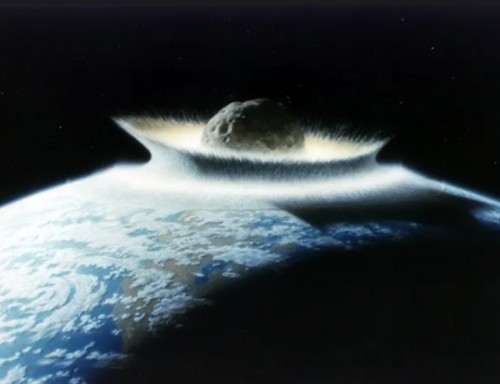
"2012 Apocalypse: Horror Theories That Gripped the World"
-
- 0 Share
- 608 Views
The year 2012 was surrounded by widespread apocalyptic predictions, largely due to the Mayan calendar, which was believed by some to predict the end of the world on December 21, 2012. This sparked numerous horror theories and supernatural speculation that turned the year into a cultural phenomenon. Below is an exploration of some of the horror theories surrounding 2012:
1. The Mayan Calendar Apocalypse
The Mayan calendar is one of the oldest and most accurate timekeeping systems ever created. The 2012 phenomenon was based on the belief that the 13th Baktun cycle of the Mayan Long Count calendar would end on December 21, 2012, which many interpreted as the end of the world. While experts have since debunked the idea, the apocalyptic theory led to horror-themed speculation, such as:
- The Opening of Dark Forces: According to some, the end of the Mayan calendar was a gateway for ancient spirits, gods, or extraterrestrial beings to return to Earth. This would trigger a series of disasters, strange creatures, and supernatural events.
- Zombie or Apocalypse Scenario: Some believed the end of days would lead to the rise of the undead or mass extinction, followed by chaos, with humanity descending into a dark, post-apocalyptic world full of strange creatures, mindless zombies, or apocalyptic wars.
2. The Shift in Earth's Magnetic Field
Another terrifying theory linked to the 2012 phenomenon was the idea that the Earth's magnetic poles would shift dramatically. This would supposedly cause massive global natural disasters, including:
- Severe Earthquakes and tsunamis due to tectonic shifts.
- Massive climatic changes with extreme cold or heat, leading to widespread destruction and chaos.
- Psychological horror: People believing the world was ending, leading to widespread panic, paranoia, and social collapse.
3. The Planetary Alignment and "Nibiru"
One of the most popular horror theories involved the alignment of planets, in which some believed that a rogue planet, Nibiru (or Planet X), would collide with Earth in 2012. This theory, though scientifically disproven, sparked visions of:
- Planetary collision: The idea that a massive, unseen planet would destroy Earth with its gravity or impact, leading to extinction.
- Cosmic horror: Some believed that the collision would tear the fabric of the universe itself, allowing otherworldly entities to invade.
4. Artificial Intelligence or Alien Takeover
A more science-fiction horror theory that emerged was the idea that in 2012, artificial intelligence or aliens would reveal themselves or take control of Earth. This was further fueled by the belief that humanity's advancements in technology, combined with the Mayan prophecy, would usher in a new era of alien oppression or AI domination.
- AI: Some speculated that in 2012, the world’s computer systems might evolve autonomously, leading to an AI uprising where machines would turn against humanity.
- Aliens: Others believed that extraterrestrial beings would invade, using their superior technology to dominate Earth, wiping out human civilization or enslaving mankind.
5. The "Wake-Up" Scenario: A Hidden Reality
A psychological horror theory revolved around the idea that humanity was unknowingly living in an artificial simulation or alternate reality. In this theory:
- The end of the Mayan calendar would be a moment of awakening where the veil between the simulated world and the true reality would be lifted.
- Some believed this would result in psychological horror, where people realize their existence is false, leading to mass mental breakdowns or violent reactions as society collapses.
6. The End of Human Civilization and Rise of New Beings
A more existential horror theory was the belief that humanity’s time was up. The 2012 event would signify the end of human civilization as we know it, but not through a natural disaster. Instead:
- Evolutionary horror: Humanity would be replaced by a new form of intelligent species, or humans would evolve into something entirely different, potentially with dark, monstrous features.
- Transformation: Some believed that those who survived the "end" would undergo strange mutations or psychological changes, resulting in horrifying new beings with no sense of humanity left.
Impact of the 2012 Theory in Horror Culture
The 2012 phenomenon became a symbol in horror films, books, and other media. Films like "2012", "The Day After Tomorrow", and "Knowing" capitalized on the apocalyptic theme, depicting cataclysmic events and terrifying, life-altering scenarios for humanity.
- Horror writers explored the supernatural implications of the "end," creating stories about alien invasions, zombie apocalypses, and cosmic horrors.
- The paranoia and fear surrounding 2012 also translated into psychological horror, as people were gripped by the uncertainty and tension of waiting for the unknown to happen.
Conclusion:
Although the predicted apocalypse did not occur, the 2012 phenomenon remains a powerful inspiration for horror narratives. It highlights humanity’s fear of the unknown, existential dread, and the unpredictability of the future. The year 2012 continues to live on in popular culture, representing a time when humanity faced the terrifying prospect of its own end—whether by disaster, invasion, or transformation.
4o mini
Please
